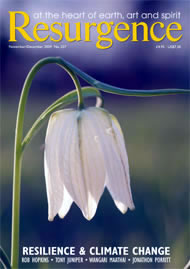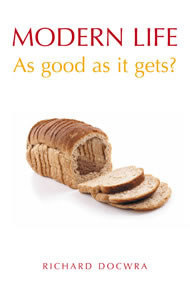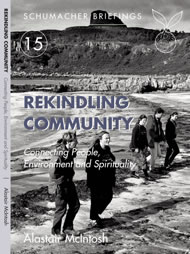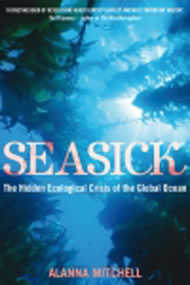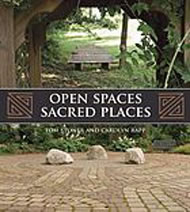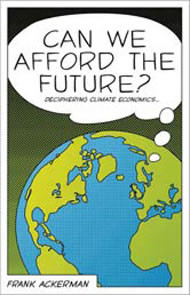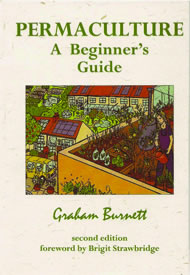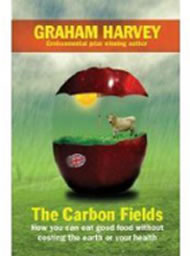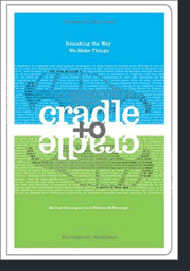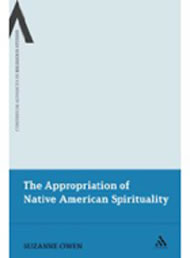Keeping Something Alive: Tools for Self Reliance - Glyn Roberts & Mark Smith. Brill Books, 2008. ISBN 9781906274078
Previously featured our Frontline section, and now thirty years after their launch, Tools for Self Reliance (TFSR) bring us this book, sharing their experience and wisdom. Initially driven by an enthusiasm for the spirit and values of volunteering, TFSR have reached the world’s poorest countries with their vision for equipping carpenters, tailors, builders and blacksmiths with cost-effective and low-impact tools. Glyn Roberts and Mark Smith provide an overview of these tricky and often fraught early years, offering sound advice and amusing tales for anyone interested in starting a voluntary organisation of their own.
Modern Life: As Good As It Gets? - Richard Docwra. Green Books, 2008. ISBN 9781903998977
How are you? A question most of us hear a few times daily, but how do you respond? This book prompts us to ponder this very question. Do you feel like you spend most of your life at work? Do you always feel busy or rushed? Richard Docwra, a keen advocate of social and global change, addresses each ‘modern problem’ in turn. From the loss of community, to the domination of consumerism in daily life, each issue is deconstructed and analysed so that the reader may gain a greater insight into how to overcome and address these causes of malaise. Freedom, happiness and fulfilment are important values for our individual lives: this book helps to reassert this.
Rekindling Community: Connecting People, Environment and Spirituality - Alastair McIntosh. Green Books, 2008. ISBN 9781900322386
All life is interconnected: people, place and Nature. Community is a wonderful example of this interconnection and this book gets right to the foundations and heart of it. Based on E. F. Schumacher’s Small is Beautiful and profiling thirteen pieces of research from WWF International in Geneva and the Centre for Human Ecology in Scotland, this book searches the soul of community. Climate change, species extinction, war and alienation all imperil the world, but here Alastair McIntosh shows us that developing and participating in community will better equip us for the challenges ahead.
Seasick: The Hidden Ecological Crisis of the Global Ocean - Alanna Mitchell. Oneworld Publications, 2009. ISBN 9781851686780
WHAT LIES BENEATH the ocean? The answer: a depth so immense that in total it makes up 99% of the living space on the planet. There is more life in the ocean than anywhere else, and even plankton produce half the oxygen we breathe. With this huge volume comes huge biological importance and scientists are now finding that global climate change is beginning to have a measurable effect on this critical medium of life. The temperature, the patterns of saltiness and the ice cover are all changing and to fully understand the seriousness of this situation, one has to comprehend the ocean as a system that is both larger than the atmosphere and influential upon it. I highly recommend Alanna Mitchell’s fascinating and well-researched book.
Open Spaces, Sacred Places: Stories of How Nature Heals and Unifies - Tom Stoner & Carolyn Rapp. TKF Foundation, 2008. ISBN 9780981565606
Everyone knows how profound the healing effect of a walk in the garden, or private sacred space can be. Public green spaces are essential to our communal and individual wellbeing – whether for a community of prisoners, of grieving parents, or of multifarious cultures – Nature has ways of drawing you in. Tom and Kitty Stoner founded the TKF Foundation as a way of creating such spaces for public enjoyment. This book is a celebration of twelve of these projects, told through the voices of ordinary people who have persevered in bringing these sacred spaces to fruition. Filled with gorgeous pictures and interesting personal stories, this is an inspiring and uplifting book.
Can We Afford the Future? The Economics of a Warming World - Frank Ackerman. Zed Books, 2009. ISBN 9781848130371
IN RECENT TIMES, global warming has been discussed increasingly in terms of economics, with some insisting that it is too expensive to reduce carbon emissions and others insisting that we will only incur more costs in future if we do not act now. Whatever your point of view, economics has become increasingly relevant to decision-making. This small, easy-to-read book will guide you through the most prominent ‘climate economics’ theories, and stresses the logic of mobilising against climate change now.
Permaculture: A Beginner’s Guide - Graham Burnett. Spiralseed, 2008. ISBN 9780955349225
Permanent agriculture or permaculture as we now know it, has become a worldwide movement encompassing all aspects of how we can live harmoniously on Earth. Earth care, people care and fair shares are the three values that remain core to the permaculture movement. With lots of illustrations, pictures and sound bites,
Graham Burnett’s book is bursting at the seams with good honest guidance. This handy little guide is a really accessible and entertaining way of immersing yourself in all things permaculture.
The Carbon Fields: How Our Countryside Can Save Britain - Graham Harvey. Grassroots, 2008. ISBN 9780956070708
Food glorious food – or should I say grass, glorious grass? For it is Britain’s once green and fertile grasslands that Graham Harvey argues can put an end to our food security worries. Our national reliance on globally traded grains has crippled Britain’s ability to provide healthy diverse food for the population. Grasslands, a much-overlooked resource, remained a major producer of Britain’s food, even in the 1960s – as drought, storms and floods only temporarily affect these fertile pastures. Nor do farmers need chemical fertilisers, pesticides or fossil fuels; grassland creates its own fertility. Because of the references to raising animals for meat, this book may be controversial for vegans or vegetarians; nonetheless, it makes for an interesting and revelatory read.
Cradle to Cradle: Remaking the Way We Make Things - Michael Braungart & William McDonough. Jonathan Cape, 2008. ISBN 9780224087865
Cradle to Cradle offers the manufacturing industry, and therefore us, a strategy that relieves us of the traditional ‘cradle to grave’ paradigm. Here manufacturers are encouraged to undertake serious research and development into natural production systems. Using this new thinking, products are designed that can be made from biologically and technically ‘nutritious’ materials using systems that favour abundance rather than reduction, genuine recycling of materials rather than ‘downcycling’, and real support for the diversity of minerals on Earth. Packed with fascinating new technologies and high ambitions, Cradle to Cradle is a book to help us not just to ‘save’ the planet, but to learn to live on it too.
The Appropriation of Native American Spirituality - Suzanne Owen. Continuum Books, 2008. ISBN 9781847063939
In response to the new ‘Biocultural Diversity’ column in Resurgence magazine, we often have discussions about what it truly means to be an ‘Indigenous’ person. It seems that in politics ‘indigenous’ often refers to a marginalised people, whilst for many the relationship between colonisation and the definition of ‘indigenous’ cannot be ignored. This complexity poses questions not just for the identification and categorisation of Indigenous ethnicity but for Indigenous religions and spirituality as well. Here Suzanne Owens looks at the appropriation of Native American spirituality by ‘non-native’ people. She explores its commodification and asks what the Native American response has been, as well as discussing ‘New Age’ practices that incorporate Native American spirituality. This book offers the reader a fascinating if very academic view of one particular Indigenous tradition. •




